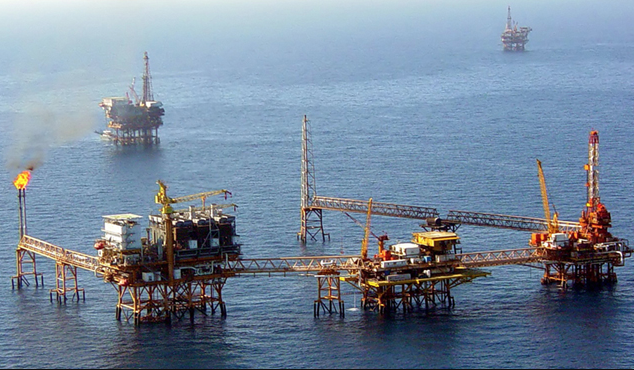The authorization granted by the Argentine Ministry of the Environment and Sustainable Development to the oil and gas company Equinor, in partnership with YPF and Shell, for offshore hydrocarbon exploration implies numerous risks for the country. And although this initiative has been rejected by broad sectors of the civil society, it has received support from both sides of the “crack” — as the division in Argentine society between Kirchnerists and anti-Kirchnerists is known.
Those in favor of the initiative point out that the activity will take place more than 300 kilometers away from the Buenos Aires shore, disqualifying those who fear a deterioration in tourism. That is wrong. It is enough to consult the scientific community about the harmful effect generated by the prospecting tasks on the biodiversity that inhabits the Argentinean sea. An example is the sound waves that affect the populations of southern right whales, which could have a devastating economic effect on the tourist city of Puerto Madryn.
But the view on both sides of the crack remains short-sighted. Even if some recognize the environmental claims, the imperative need to generate jobs, fiscal resources and foreign exchange is stronger. If the project generates a negative impact on the environment, it should be ignored as the (economic) urgency leaves the (environmental) luxuries for later.
Regardless of the different perspectives, these proposals are not in line with the objectives sought. Regardless of the points of view, such approaches are not consistent with the objectives sought. It is unknown the problem of stranded assets associated with the pace of the global energy transition and the consequent loss of value of industry assets and associated infrastructure. If the resolution of such a dilemma was local, it could be solved, although there would be drawbacks. The problem is global, as the decisions of some to mitigate physical risk could increase financial risk in others. This is what those who cling to offshore development in the Argentinean sea should see.
On the other hand, the probability of an abrupt drop in demand as a result of greater environmental awareness, technological change or the introduction of new environmental regulations is not being taken into account. The first is associated with the response of governments to the irruption of extreme climatic phenomena: floods, fires, tornadoes, droughts. The proliferation of such phenomena accelerates the transition, as those who previously doubted the urgency of climate change are now pressuring their governments to initiate the transition.
In terms of technology, the advances observed in the last decade have led to a drop in the cost of generating clean electricity by more than 85% for solar energy and 56% for wind power. More decisive is the cost reduction in offshore wind farms, which could become competitive in our region during this decade, which would imply a true transformation of the energy industry.
General Electric, one of the main players in the market of green energy technologies, has built with Siemens Gamesa and Vestas Wind Systems, a giant prototype in France, called Haliade-X, which generates almost three times more energy than current windmills. Compared to the first offshore equipment installed in Denmark 30 years ago, GE’s prototype generates 30 times more electricity.
Finally, it is worth noting the various changes taking place at the institutional level. New environmental laws, standards and regulations are placing limits on thermal power plants. Every day, new cities around the world impose restrictions on the circulation of petrol and diesel vehicles. By 2024, no such cars will be allowed to circulate in Paris or Madrid. Many countries are also moving towards banning the sale of internal combustion vehicles by the end of this decade.
All these changes may imply that the end of oil will be linked to a peak in demand, but not in supply as many have suggested. According to a recent report by the non profit Carbon Tracker Initiative, the peak could come in four to five years, while the projects being analyzed in this article would begin their operational phase as demand begins to decline.
Regardless of how the decline occurs, what is important for the region is the exogenous nature and the consequent problem of stranded assets. In this framework, inserting the transition risk implies recognizing the dynamic nature of the problem, with an oil industry that ends up demanding more foreign currency than it promises to generate.
It is less accurate to associate offshore exploitation with technological development. If the ambition is to reduce the technological frontier, the bet should be on renewable energies. The renowned academic Carlota Perez stresses the strategic nature of investing in green technologies, as this makes it possible to join a new “technological wave”. Early detection and adoption makes it possible to appropriate extraordinary rents, reduce the technological gap and generate quality jobs.
For that to happen, the State must take an active role in regulation, financing, fostering of research and development, and must have a strategic vision that envisions potential sectors, but also takes advantage of the current industrial and technological capabilities. Unfortunately, Argentina is squandering resources and missing opportunities.
Translated from Spanish by Ricardo Aceves
Autor
Associate Researcher at the Center for the Study of State and Society - CEDES (Buenos Aires). Author of "Latin America Global Insertion, Energy Transition, and Sustainable Development", Cambridge University Press, 2020.












